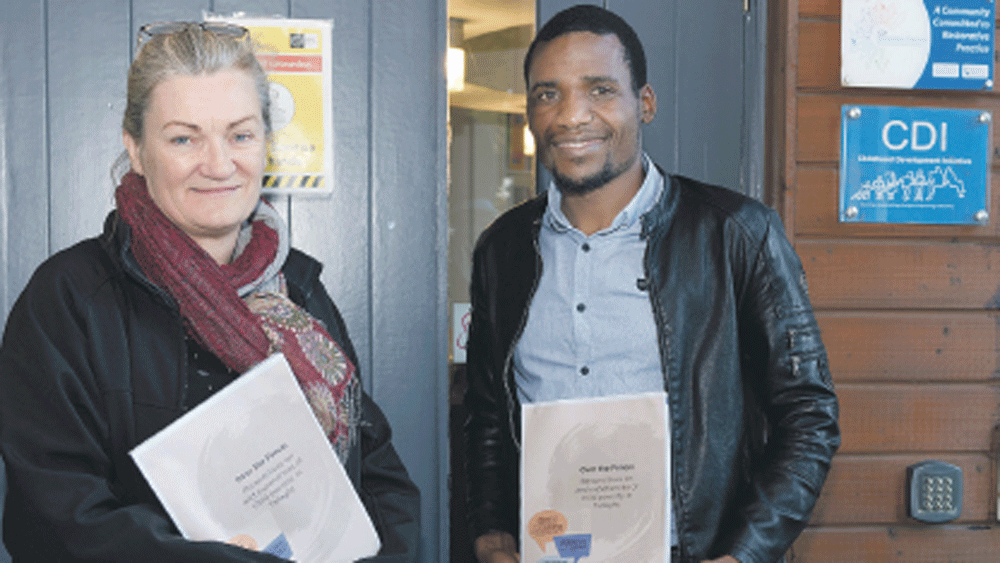
Food poverty is ‘masked’ by the provision of school meals
A NEW report on child poverty in Tallaght calls for additional recovery resources for children disproportionately affected by the Covid-19 pandemic.
Launched on Tuesday, the report, written by the Childhood Development Initiative (CDI), identifies challenges faced in the community, including food poverty, housing and access to health services.
Called Over the Fence: Perspectives on and Experiences of Child Poverty in Tallaght, the report was compiled in 2020 through discussions with focus groups including children, parents and service providers.
The report found that income is a key driver of household poverty and is associated with deprivation in food poverty, housing, access to health services and education.
Participants also described the housing crisis in Tallaght as ‘deepening’ and having ‘far reaching consequences’, with a connection between housing and mental health highlighted.
The report highlights mental health as a general challenge for both children and parents, including depression, anxiety, isolation and stress.
Issues around neighbourhood safety is also a major concern for families and children in Tallaght.
These concerns include robberies, break-ins and stealing, which, according to the report, is perceived to be on the rise.
While these issues presented difficulties for families in Tallaght before the pandemic, the Covid-19 crisis heightened challenges faced.
It also uncovered the extent of existing issues around food poverty, for example.
As outlined in the report, the extent to which families in Tallaght are affected by food poverty was ‘masked’ by the provision of school meals, with food poverty spiking when schools and services closed in the initial stages of the pandemic.
Marian Quinn, the CEO of CDI, said: “Priorities to address child poverty gathered in this study are tackling homelessness and creating community platforms that foster child interactions and socio-emotional wellbeing, to improve community safety and to focus additional targeted interventions at children with specific needs.
“While early intervention should be implemented on a universal basis, services must be delivered and resourced to respond to children and families at risk and who require more intensive interventions.
“These are particularly needed at this time for some families following the impact of the pandemic.”
Ms Quinn said that a system is needed to ensure all children have a nutritious meal every day regardless of whether they are in school or not.
She also believes a greater awareness of existing services is needed.
“Greater awareness of how to access existing services is needed, to ensure children and families engage with comprehensive services,” Ms Quinn said.
“Furthermore, enhancing interagency collaboration and referral systems is critical in addressing multidimensional child poverty.”
Speaking with The Echo after the report was launched by Minister of State Joe O’Brien, Ms Quinn stressed how the study highlights the difficulties but also the strengths within Tallaght.
She also noted how during the virtual launch, a suggestion was made to develop an anti-poverty plan specifically for the South Dublin County Council area, a plan which could be shaped to suit other local authority areas nationwide.
“National plans are important, but we also need local plans to be developed,” Ms Quinn noted.
“This is a report about Tallaght but there’s a lot of learning that can be replicated in other communities.
“This research can help all of us to be better informed on what’s going on in communities.
“Help us make better decisions and target resources where they are most needed.”
Looking forward, CDI’s data specialist and main report author Jefrey Shumba believes that children should be consulted when solutions are being developed.
“Consultations should be conducted with children on designing, developing and implementing solutions to child poverty in Tallaght,” Mr Shumba said.
“This will strengthen the chances of addressing the felt needs of children, develop children’s capacity to lead and own interventions seeking to address child poverty, maximise the sustainability of interventions and embed ownership within the community.”
Calls have now been made for a Covid-19 Recovery Plan for children affected, and further action taken based on the recommendations made in the report.
For further information on CDI, which is based in St Mark’s Youth and Family Centre, Cookstown Lane, visit www.cdi.ie – where the full report can also be read.

